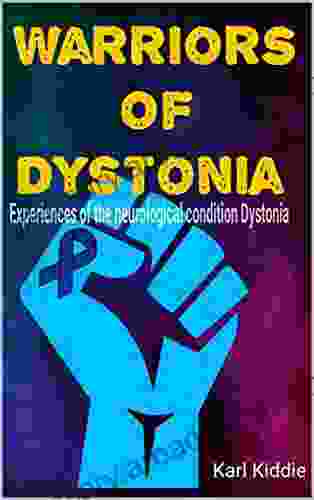Clinical Reasoning: How Doctors Should Think

Clinical reasoning is a complex process that involves a number of different cognitive skills. It is a skill that all doctors must develop in Free Download to be successful in their field. Clinical reasoning skills can be learned and improved through practice.
5 out of 5
| Language | : | English |
| File size | : | 13993 KB |
| Screen Reader | : | Supported |
| Print length | : | 238 pages |
| Lending | : | Enabled |
This book provides a comprehensive overview of the clinical reasoning process. It covers a wide range of topics, including:
* The different types of clinical reasoning * The cognitive skills involved in clinical reasoning * The steps involved in the clinical reasoning process * Common pitfalls in clinical reasoning
The book is written by two experienced physicians who have a deep understanding of the subject matter. They provide a clear and concise explanation of the clinical reasoning process, and they offer a number of practical tips and advice that can help doctors improve their clinical reasoning skills.
The Different Types of Clinical Reasoning
There are a number of different types of clinical reasoning, including:
* Diagnostic reasoning: This is the process of figuring out what is wrong with a patient. It involves gathering information from the patient's history, physical examination, and laboratory tests. * Treatment reasoning: This is the process of deciding how to treat a patient's condition. It involves considering the patient's individual needs and preferences, as well as the available evidence-based treatments. * Prognostic reasoning: This is the process of predicting the likely outcome of a patient's condition. It involves considering the patient's age, health status, and other factors. * Ethical reasoning: This is the process of making ethical decisions about patient care. It involves considering the patient's values, the physician's own values, and the ethical principles of medical practice.
The Cognitive Skills Involved in Clinical Reasoning
The cognitive skills involved in clinical reasoning include:
* Critical thinking: This is the ability to analyze information and make sound judgments. * Problem solving: This is the ability to identify and solve problems. * Decision making: This is the ability to make decisions under uncertainty. * Communication: This is the ability to communicate effectively with patients, families, and other healthcare professionals. * Empathy: This is the ability to understand and share the feelings of others.
The Steps Involved in the Clinical Reasoning Process
The clinical reasoning process involves a number of different steps, including:
* Gathering information: The physician gathers information about the patient's history, physical examination, and laboratory tests. * Generating hypotheses: The physician generates a list of possible diagnoses for the patient's condition. * Testing hypotheses: The physician tests the hypotheses by Free Downloading additional tests or asking the patient additional questions. * Making a diagnosis: The physician makes a diagnosis based on the results of the testing. * Developing a treatment plan: The physician develops a treatment plan for the patient's condition. * Monitoring the patient: The physician monitors the patient's progress and makes adjustments to the treatment plan as needed.
Common Pitfalls in Clinical Reasoning
There are a number of common pitfalls that doctors can fall into when they are reasoning about a patient's condition. These pitfalls include:
* Overconfidence: Physicians can be overconfident in their ability to make a diagnosis. This can lead to them overlooking important information or making errors in judgment. * Confirmation bias: Physicians can be biased towards confirming their initial hypotheses. This can lead to them ignoring evidence that contradicts their hypotheses. * Premature closure: Physicians can prematurely close the diagnostic process before they have gathered all of the necessary information. This can lead to incorrect diagnoses. * Diagnostic inertia: Physicians can be reluctant to change their diagnosis once they have made it. This can lead to them missing changes in the patient's condition.
Clinical reasoning is a complex process that involves a number of different cognitive skills. It is a skill that all doctors must develop in Free Download to be successful in their field. This book provides a comprehensive overview of the clinical reasoning process and offers a number of practical tips and advice that can help doctors improve their clinical reasoning skills.
5 out of 5
| Language | : | English |
| File size | : | 13993 KB |
| Screen Reader | : | Supported |
| Print length | : | 238 pages |
| Lending | : | Enabled |
Do you want to contribute by writing guest posts on this blog?
Please contact us and send us a resume of previous articles that you have written.
 Book
Book Novel
Novel Page
Page Chapter
Chapter Text
Text Story
Story Genre
Genre Reader
Reader Library
Library Paperback
Paperback E-book
E-book Magazine
Magazine Newspaper
Newspaper Paragraph
Paragraph Sentence
Sentence Bookmark
Bookmark Shelf
Shelf Glossary
Glossary Bibliography
Bibliography Foreword
Foreword Preface
Preface Synopsis
Synopsis Annotation
Annotation Footnote
Footnote Manuscript
Manuscript Scroll
Scroll Codex
Codex Tome
Tome Bestseller
Bestseller Classics
Classics Library card
Library card Narrative
Narrative Biography
Biography Autobiography
Autobiography Memoir
Memoir Reference
Reference Encyclopedia
Encyclopedia George Makepeace Towle
George Makepeace Towle Robert L Hewitt
Robert L Hewitt Joel Henriques
Joel Henriques George A Fowler
George A Fowler Gisa Pauly
Gisa Pauly John Bronsteen
John Bronsteen Steve Doocy
Steve Doocy Geoffrey K Vallis
Geoffrey K Vallis Gil Troy
Gil Troy Wensheng Wang
Wensheng Wang Gary A Wilson
Gary A Wilson Leo Egerev
Leo Egerev Kareti Rama Krishna
Kareti Rama Krishna Kelly Galea
Kelly Galea George De Stefano
George De Stefano Tvod
Tvod Mary Gauthier
Mary Gauthier Geoffrey Charles Emerson
Geoffrey Charles Emerson Gabrielle Townsend
Gabrielle Townsend Gi Wook Shin
Gi Wook Shin
Light bulbAdvertise smarter! Our strategic ad space ensures maximum exposure. Reserve your spot today!

 Miguel NelsonHelp Your Child with ADHD: Break Free from Negative Behaviors and Empower...
Miguel NelsonHelp Your Child with ADHD: Break Free from Negative Behaviors and Empower...
 Gregory WoodsWelcome to the World of ABCs: A Review of "Abc Alphabets High Contrast Baby...
Gregory WoodsWelcome to the World of ABCs: A Review of "Abc Alphabets High Contrast Baby...
 Dustin RichardsonUnleash Your Sicilian Fury: Master the Grand Prix Attack with Our Ultimate...
Dustin RichardsonUnleash Your Sicilian Fury: Master the Grand Prix Attack with Our Ultimate... Herman MitchellFollow ·9.9k
Herman MitchellFollow ·9.9k Jorge Luis BorgesFollow ·4.1k
Jorge Luis BorgesFollow ·4.1k Zadie SmithFollow ·14k
Zadie SmithFollow ·14k Jamison CoxFollow ·19.5k
Jamison CoxFollow ·19.5k Jonathan HayesFollow ·19.1k
Jonathan HayesFollow ·19.1k John SteinbeckFollow ·16.4k
John SteinbeckFollow ·16.4k Gene SimmonsFollow ·13.5k
Gene SimmonsFollow ·13.5k Heath PowellFollow ·12.8k
Heath PowellFollow ·12.8k

 Chinua Achebe
Chinua AchebeLetters to My Bipolar Self: A Journey of Hope, Healing,...
Bipolar disFree...

 John Parker
John ParkerLearning to Breathe from the Breath Itself: A...
In the whirlwind of modern life, finding...

 Beau Carter
Beau CarterExperiences In Psychoanalysis: A Journey into the...
Are you fascinated by the...

 George Hayes
George HayesExperiences Of The Neurological Condition Dystonia
Navigating the Labyrinth of a Complex...

 Jerome Powell
Jerome PowellOver 50 Keto Meal Prep Recipes: Your Essential Guide to...
Welcome to the world...
5 out of 5
| Language | : | English |
| File size | : | 13993 KB |
| Screen Reader | : | Supported |
| Print length | : | 238 pages |
| Lending | : | Enabled |








